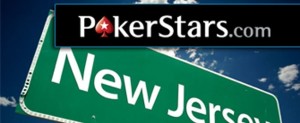 In the next 30 to 90 days, one of the biggest online poker gaming sites, PokerStars, is expected to get a license to operate in New Jersey, issued by the state’s Division of Gaming Enforcement. It is also seeting to launch its online poker room locally in conjunction with its partner, Resorts Casino, according to Amaya CEO David Baazov.
In the next 30 to 90 days, one of the biggest online poker gaming sites, PokerStars, is expected to get a license to operate in New Jersey, issued by the state’s Division of Gaming Enforcement. It is also seeting to launch its online poker room locally in conjunction with its partner, Resorts Casino, according to Amaya CEO David Baazov.
Many gambling insiders believe that the impact of PokerStars being sanctioned in New Jersey won’t be the game changer a lot of players wanted but that doesn’t mean PokerStars’ impact will be dismissable. Actually it should be far from that. How? PokerStars should solidfy many of the New Jersey online gaming industry’s shortcomings. The online company’s strengths are a perfect fit for New Jersey. Online casino revenues in New Jersey are doing very well evident by the current six-month upswing. New Jersey’s online poker revenue is quite different.
Online poker revenue peaked before online casinos did, by June of 2014 has plateaued right around $2 million USD per month. Unlike iCasino revenues, iPoker hasn’t experienced a second wind and the numbers have simply stabilized. But now with the introduction of PokerStars into the stagnated market, it might be able to return the state’s online poker revenue numbers back to their previous figures of $3.5 million, and that would have a huge effect on the perception of online gambling in New Jersey.
As of now, online casino revenues are fast approaching the $11 million per month mark, and $12 million per month is starting to look like a real possibility by year’s end. The difference would be $168-$192 million per year, instead of the current between the current $156-$168 million. So PokerStars might just reverse iPoker’s downswing.
What else that is a huge benefit to the local industry is the cache the name brings to the market. PokerStars has name recognition. Of all the online poker sites that operate in New Jersey today, PokerStars is the only one potential players actually know or may remember by name or by sight. It had brand power.
Many other bigger brands like Betfair, 888, and Partypoker, left the U.S. market following the passage of UIGEA in late 2006. That 7-year hiatus is a long time for there to be a void in the market. And that doesn’t take into account that all three operators who left are now visually very different than their previous U.S. incarnations (Partypoker adopted a new logo and branding since). That means that new players and old have very little chances of being recognized now since logos do not bring back memories or associations. PokerStars had remained operating in the U.S. for an additional four years, until April 15, 2011 so PokerStars’ name and brand are more recognizable and fresher in player’s minds.
So now, PokerStars will be in a position to usher in a second wave of marketing since they know the market, and because of their absence the company are planning to market heavily. Why? It’s because a significant percentage of New Jersey residents are still unaware online gaming has been legalized by the state.
PokerStars will come into New Jersey spending heavily on advertising, so it will not only inform New Jersey residents that PokerStars the familiar brand has returned, but that the company has done it legally, fully licensed and regulated by the New Jersey Division of Gaming Enforcement. It will probably force other local operators to increase their spending on marketing ploys or be left behind and swallowed by PokerStars’ wave of marketing blitzes.
PokerStars’ marketing dollars will bolster the other operators in the state in their own process of promoting themsleves. They’ll unintentionall promote New Jersey’s legal and regulated online gambling industry too. It’ll be the perfect example of when the saying goes; “rising tides lift all vessels.” PokerStars is sure to make New Jersey’s online gambling boat float.

